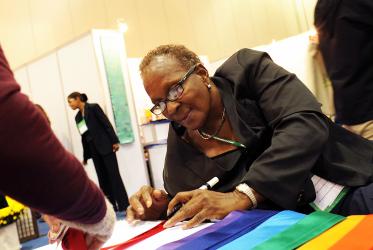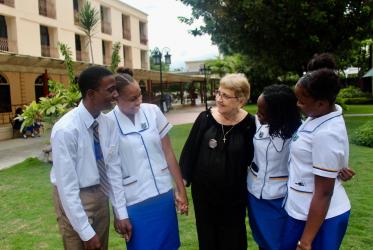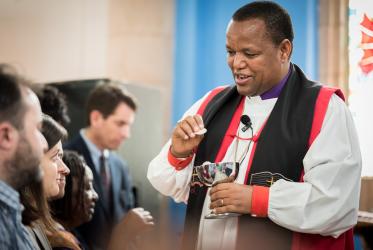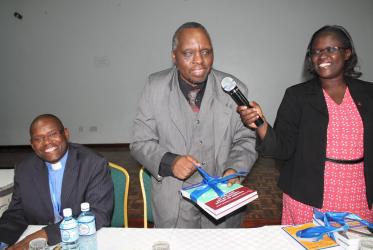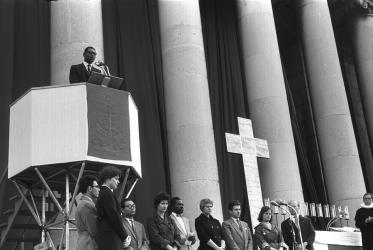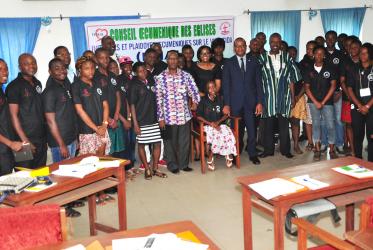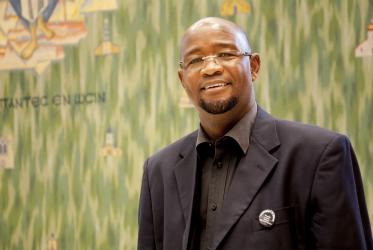Displaying 1 - 10 of 10
“If this is the ecumenical movement I want to be in!”
11 October 2018
Arusha offers vibrant and colourful worship life
12 March 2018
New theological materials offer fresh perspective on disabilities
08 December 2016
Churches need to do more to tackle HIV and AIDS
23 June 2015
